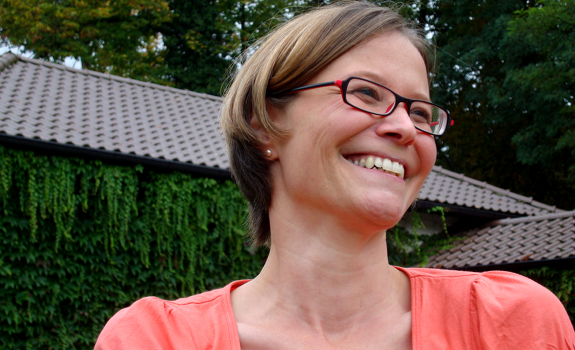Radio is closer to people than any other medium, but should be honest towards listeners. FAIR RADIO is a German initiative to preserve radio’s integrity and credibility.
If the radio industry underestimates the intelligence of its audience, and does not invest in self-producing quality content and keeping editorial independence, it could affect radio’s image. ‘PR-ayola’ (my name for it) was one of the topics that I talked about with German radio journalist and presenter Sandra Müller (you could also read part 1 first).
You’re one of the people behind FAIR RADIO. Why is this initiative necessary in your opinion?
“Unfortunately there is a lot of staging and cheating going on in radio. For example, there are public relations agencies that produce professional sounding, ready-to-air radio features. These are ordered by companies and organizations that want positive publicity or secretly advertise. Stations receive this content for free and sometimes just put it on the air. The audience doesn’t know that this is a sponsored feature. It happens a lot in Germany, and it destroys what radio does best: being authentic and close to people.”

FAIR RADIO co-founder Sandra Müller: “There is a lot of staging and cheating in radio” (photo: Thomas Giger)
Are especially small, local, understaffed radio stations broadcasting these PR features 1:1?
“We have evidence that it is more common than many people think. Journalists have found out that almost every well-known radio station in Germany is a client of this kind of PR agencies – even some public broadcasters. A study by the Landesanstalt für Medien Nordrhein-Westfalen (LfM) mentioned that journalism is ‘infiltrated’ by persuasive content. It’s big business. Interestingly enough, almost no one in Germany really seems to care about it. Reports about it are rare, and there are almost no punishments.”
 PR-ayola… the new payola?
PR-ayola… the new payola?
Payola all over again, just in a different form? “As long as stations don’t take money for it, it’s not considered to be surreptitious advertising. But we have found some cases where radio stations admitted that they received money for broadcasting this PR content within the normal program. These stations sell themselves; become henchmen of public relations agencies and use airtime for something others paid for! We think it’s damaging for radio.”
Radio broadcasting integrity code
FAIR RADIO established 6 rules for credible radio, named Tutzinger Appell, a manifesto which name is based on the radio conference where it was founded:
1. Research comes before speed
Research before speed does not necessarily mean ‘reporting slow or too late’ on air. It’s more a matter of workflow – often it’s easy to plan ahead and block time to do thorough research, instead of eating what’s being served on a golden tray.
2. There are no tricks used to pretend situations
Using recorded sound effects and other tools to avoid the truth, are seen as unethical. Examples: reporters who are allegedly present at a scene, but actually sit in the studio, and traffic reports that don’t really come from a helicopter or airplane.
3. Something that isn’t live, is not sold as being live
If something is not live, why pretend that it is? Listeners should not be fooled, because chances are that they’ll find out, through painful technical mistakes like this (play the first aircheck). If an interview has been pre-recorded, it could simply be mentioned before.
4. PR content is part of commercial airtime, not of the editorial program
Unless it’s identified as advertisment or infomercial, radio stations should not broadcast radio productions from PR agencies without checking the facts or editing the content. Otherwise radio will lose a big part of its integrity and credibility.
5. News is broadcast live (so it’s not pre-recorded)
Radio news is the epitome of the timeliness and reliability of radio, so nightly re-runs of old news are not ideal. Once a listener questions whether what is being told is up to date, it can affect the image of the entire radio station.
6. Cheating during contests is a no-go
Especially when a contest is on-air across a large network of local stations, listeners should not be given the impression that the sweepstake is just for their own area. Radio stations have to be transparent about the actual chances to win.
You can digitally sign the manifesto for more credible radio on the FAIR RADIO site [German].
“Radio is emotion. It moves people.”
Today’s radio journalists have to produce more and more items, for more and more platforms, in less and less time. Besides reporting for radio, you also do it for TV. How do you cope with it yourself?
She takes a deep breath. “I have the advantage that I’m filled with a lot of energy, and that I love doing many things. But I do notice that when you cover a story for different media separately, the outcome is better. When I’m on the road for both radio and TV, I can’t get the perfect footage and the best audio at the same time.” Müller explains that combining audio and visual disciplines is a challenge because of television’s workflow. Editors in the studio often ask for the video footage first.
 Radio & TV hardly compatible
Radio & TV hardly compatible
“When it’s time to record the radio part, often the best situation that gives you the cool sound bites has already evaporated. It hurts me sometimes, and yes, I’m afraid that it falls back on the radio. It seems that everyone gives priority to what’s seen on the screen; not what’s heard. For radio, you then use some audio bits from the TV report. Usually they sound lousy… Bi-media work is a beautiful ideal, but often both end results are not the optimum.”
How do we keep radio relevant in a visual, online, social media world?
“I think by deliberately drawing attention to radio’s uniqueness. Radio is closer to people’s emotions than any TV show, like an American radio strategist said this year at the RADIO DAY (Dennis Clark, during a morning show session). The personal bond between a good presenter and a loyal listener is strong, especially when radio is done well and good storytellers have their creative space. When we find and develop personalities, radio will stay as good as it’s always been.”

Radio & TV reporter Sandra Müller: “A camera changes reality, a microphone comes close” (photo: Thomas Giger)
What is radio for you?
“Radio is an incredible authentic medium because interviewees quickly forget about the microphone. I can talk to people like I do in normal life. I don’t have to look at my notebook or write down things and translate them into text later. I’m also not altering a situation too much, as sometimes happens when you produce for television. Often people become different in front of a camera and don’t open up completely. A camera changes reality, a microphone comes close. Radio is emotion. It moves people.”
Also read:
- ‘Good Small Talkers Are Good Radio Presenters’
- Public Relations und werbliche Erscheinungsformen im Radio [book, German]





Add Your Comment